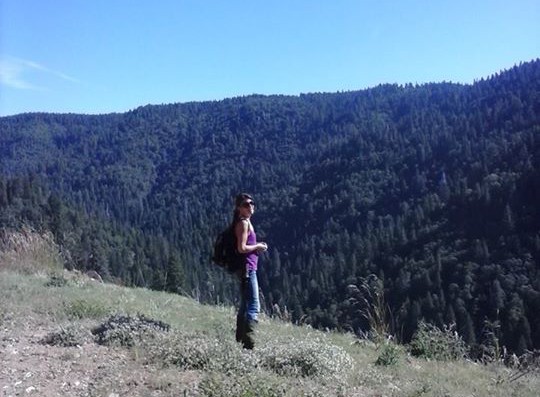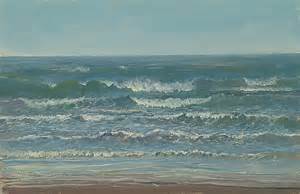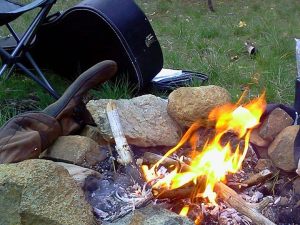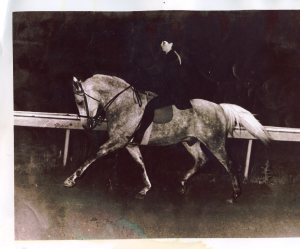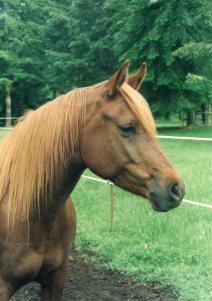(fiction , 2013)
I arrive outside my apartment building and do everything I can to avoid parallel parking my truck, which means driving around the block a few times, and while I’m looking for a spot I see a vehicle that is exactly like my mother’s. Of course I see these all the time in Portland, tan Ford Explorers. But something about this particular car makes it hers, mom’s car, and it’s not a ding or a scratch in the side that distinguishes it, not a certain type of hubcap or particular dulling of the headlights. No, but it just. Must. Be. The way you know your own dog, who is an Australian shepherd, even though there must be hundreds of thousands of Australian shepherds on the earth and each dog looks more or less the same. You connect with the very essence of your own dog, just like, driving by it, I have connected with the very essence of my own mother somehow residing in and resonating from this altogether common car I passed at a crawl while looking for a parking space. I find one across from a park, beneath the fragrant needles of a Cedar tree, three blocks up from my building.
I park the little Ranger and step on the E-brake, then release it again and it spring-slams back. This is a habit from living up in the mountains with Ewan and every time I do it I am reminded of him, but I hardly notice the sting. I don’t let it– after all, most things in the world remind me of him and no amount of reminiscent salt in my scratches can make him love me. It doesn’t add to my grief, or relieve it. It just goes on, a boring, dog-with-rawhide gnawing at my spirit.
I guess I stare, when I pass the Explorer again on foot. “Champagne” is the color mom said they called it, saying how the dust wouldn’t show on it because it’s the same shade, and I said:
“Then why isn’t it called ‘dust’?”
I get close enough to discreetly peek over and into the car, and even though it’s almost six o’clock and the crisp October sun is gone but the moon has yet to rise, I can see the shiny piece of amber, embedded in the center of a twisted pewter cross, hanging from the rearview mirror. Just before Christmas when I was nineteen, I found it at one of the rummage antique stores on SE Hawthorne and brought it home, and braided together three old necklace chains to hang it from, knowing my mother would appreciate how the amber complimented her “champagne” exterior. This isn’t normal, for Cindy to be in Portland, randomly on a Saturday night. Why didn’t she call? My parents often come into town on shopping trips from Estacada, the little logging town where I grew up, where they live, but they always call before they come over. And since Cindy wasn’t in the car I’m now certain is hers, (Rhett would have driven his pickup if he were with her), she must be up in my place, to which she has a key, for emergencies.
I begin to list mentally the reasons that could bring my mother to my dwelling unannounced and come up blank. Cell phones exist, as does email. Maybe she’s upset. Maybe she and dad have been fighting.
It isn’t possible. In twenty-one years of knowing these people inside and out from dawn to dusk I have never seen them argue over anything of more impact than what to watch on TV, beef or chicken, organ donor or no…
I punch in my code and leap in long strides up the stairs, three flights, to my landing. I listen for music, for clues. Mom sometimes arranges to come over and get drunk in her single daughter’s place, pretending she is me or I am her, which we are. She’ll take a gin and tonic time machine around the Southeast, beatniking the booze cafes like she does sometimes when dad goes hunting or fishing, whatever he does on his long weekends that sometimes stretch into two weeks. Why my mother never nags him or complains about this to me I don’t understand. She nags and complains about most other things. But no, when he leaves, and maybe tonight, she will broodingly don a black beret and run between alehouses abusing Bob Dylan and Kerouac quotes, as she does from time to time, flirting with men who could never have her to be on the safe side. But the closer I get to my door, the more the whole thing feels like crazy weather.
“Your dad’s dead.” Is what I hear when I look into my mother’s hard, weary face.
There is no way to say or hear these words gracefully. Because I don’t know what to do with my face, because I am numb and can’t really feel what my face is doing, I bury it in the warm space that is my mother’s hair and neck and shoulder.
Sam Dresden stands in my living room with a quiet demeanor and a strong chin, a doctor
from the hospital where Cindy works as a nurse. Dr. Sam approaches and I can hear his Italian soles on my carpet and I feel his hand on my shoulder, but I don’t. Really feel it. And I know I should stay here and comfort my mom, but I don’t. Dr. Sam, in his rich, Don Lafontaine voice, is saying something about, “Drowned in the river but they aren’t sure…” and I lift my head, feel the sting of cool air where my mother’s warmth and my own is separated, look her in the eye. With both hands on her shoulders, I say,
“I am so sorry, mom.”
I grab the slouchy green bag I keep under the round mahogany table in the foyer as I leave. I hear mom calling out to me, “Wait, Sarah!” but I don’t.
This green kit I have stashed for emotional emergencies is made out of very soft denim and looks something like a tackle bag (And in fact there is an old fishing lure stuck in the side that my dad slipped in when I wasn’t looking, some busy morning before school, and now cannot remove), except the color is lighter, like an army duffel left in the desert for a decade. I keep it near the door because I don’t want to drink with Ewan, but he makes me want to drink when he is here. I often go for a drink and a smoke in the park to escape my lover, who is my captor, and to try to escape his hold on me and regain some of myself.
The main order of business in the bag is a bottle of Johnny Walker Red, my drink. I converted when I discovered Elliot Smith, his song “Miss Misery”, a few years back.
“I’ll fake it through the day with some help/ from Johnny Walker Re-e-ed/ and the cold pain behind my eyes/ that shoots back though my head…”
Now I rarely drink anything else, and in fact rarely drink at all. I grew up watching my
Cody/ The Fish Hook/ 5
father methodically clean his guns for hours, the whole time sipping slowly from the same glass of Maker’s Mark, in his den at home. When I once commented,
“You really take your time with that stuff, don’t you?” (I meant the drink but he thought I was talking about the guns), he launched both of us into an hour that would change my future, during which he explained how each weapon was disassembled, cleaned, and reassembled, how one careless move could literally blow up in my face. What I took from that conversation was inspiration to be sober, and methodical, and thorough in all things, like him. Twice as a teenager I came down to his den at night when I couldn’t sleep and poured a glass of whiskey for myself, and tried to fit into his place in that room, sipping it. Then I screwed the cap back on the bottle and replaced it in his rifle cabinet, on top of the locked drawer which no one else on Earth but Rhett knew the contents of.
There’s also a leather-bound journal in the bag, and a short, thick-walled cobalt-blue glass with crystal-cut edges ‘round the bottom so that it sparkles in the light of towering streetlamps like a very large sapphire. I sit on a bench at the riverfront, looking upon the Columbia.
I pour one and stay there, and this is the process. Sadness, disappointment, fury; these emotions all shock me completely and I cannot cry. As much as a desperately, maddeningly need to cry, I cannot, so I come down here, past Pioneer Square and down Yamhill to Riverfront Park, to this bench, and drink. And after a while the liquor acts as a harsh solvent against my thick armor of stoicism. My father once told me, “Stop Whining.” And so I did.
I realize I haven’t had my cell phone since I left it lying on the seat of my truck, powering it down intently like throwing away a stale cookie after one dissatisfied bite because Ewan wouldn’t stop texting me. Asking me to eat with him. Asking me, “What’s wrong?” Although he knows. With every ounce of him, beyond either of our flippancy, he knows. This is the process. He tries to relieve his own guilt about stringing me along by continuing to string me along with his apologetic concern. He disguises as loving affection his selfish desire to prolong a relationship with frequent, oh so hot sexual encounters and a very casual level of commitment. From him, anyway, and I know if he were here right now he wouldn’t know to hold me.
A man and his daughter are walking their dog. I’m sipping, and see them, and I am in Seaside, digging for clams with my dad as a child, and I grope with my mind around the place he fits, but he’s gone. I couldn’t fill his chair back then, in his study, and he can’t fill it now. The steely truth of that emptiness forms in my throat like the jagged shell of an oyster, firm like the meat of a clam tensed to fight in his final moments, and a single drop of rain hits the middle of my forehead like Chinese water torture as I look up, I think to try and reach him. City lights across the river shine red and gold and shimmer in the ripples that begin to form on the water as the rain picks up, and I take a second sip of scotch. The drink looks clear black, in the sapphire glass, like the ponds we found once, deep in the Hoh Rainforest. I close my eyes, which drip tears, as I lower my drink to my lap and feel the hot wetness of grief, true grief, for the first time in my life, pour down my face and into my childhood. Creaking open are the gates to the new and unwanted freedom, deliciously dark, of losing a parent to death.
All at once, after decades or moments, the waves of nauseating agony subside as do my violent sobs, and all is quiet on the river. The father and girl have gone. I must have been wailing, but I’m wrung out now, I’m finished. I compose my posture and drain the glass, reach for my bag to fix it. I prick my finger on the ever-present fish hook and flash on my father’s memory and feel the sting like a bad dream, like never being able to wake up from one, and my heart is at war again. Again, I cry.
I walk back to my building in the drizzling, sea-spray rain but I don’t go home. I find my keys in the bottom of old green and unlock my pickup, dig out my jacket and put it on over my soaking wet tank-top and slippery shoulders. For a moment the fabric feels abrasive, itchy and slightly gross against my damp skin but a few miles out of town the heat cranks up and I forget about it. I light a cigarette and get on Highway 212 toward home, turn the radio to the country station that plays twangy stuff from the nineties like I used to hear every day on the school bus, and on the way to the river with my dad. “A thousand Miles from Nowhere” by Dwight Yoakam is on.
“I’ve got bruises on my memory/ I’ve got tear stains on my hands/ and in the mirror there’s a vision/ of what used to be a man…”
The clock on the dash says 9:07 but really it is 8:07. I’m mindlessly driving down the same roads I’ve always followed home, taking the same turns I’ve taken all my life, but I won’t go home when I get to Estacada. I’ll probably just drive, up the Clackamas River where lush beds of wild lilacs grow all summer along the highway, which is otherwise lined by eerie moss-weeping pines over floors of dark ivy and moss-covered logs. I want and don’t want to scream. I see someone, walking almost on the road because there’s barely a shoulder here, just past Eagle-Fern Park, where the two-lane highway winds like a snake and witchy trees hover like beggars above him.
The guy looks like Alex, a kid I knew in college, with his long blonde hair and beard on a young, handsome face like a child dressing up as his uncle. He wears patchwork pants and a grateful dead t-shirt, with a fishing pole over his left shoulder and a small leather pouch hanging at his hip. He sticks out his right thumb and smiles as I pull up. Alex used to say:
“You smile at them so they know you’re not a psycho killer.”
I come to a stop on the side of the road and roll down the passenger window, his face appears, and rain droplets roll down strands of his dirty, half-dreadlocked hair into crystal blue eyes.
“Where are you going?” I ask him.
“Home.” He says, grinning playfully despite the fact that he is shivering. I can’t help but feel the buzz of the whiskey and the clean feeling of having cried, but I can’t try to grasp that relief without remembering daddy, and picturing his face, void of soul, still connected somehow to a pale slab of him somewhere clinical and cold. I choke. I can’t help but see it, I wish I couldn’t see that. I smile back at the hitchhiker in spite of myself, because that’s what you do.
“Where’s home?”
In the brief time before I know anything about this man, he is Alex, crazy, funny Alex with whom I sat inside a tent during a hailstorm and heard say:
“Now I know what a pop rock feels like.”
Alex who, the night we met in the flicker of a bonfire, I told:
“I think I better go tonight.” Serious. Intense. “If I stay here I’ll fall in love with you.”
He once introduced me at a party as a girl he used to date.
“I thought we were just fucking.” I said, and felt sorry when he became sheepish.
“Well, I guess I just don’t get a lot of girls to date me.”
now he’s on a train he’s not official for, somewhere in France or Italy, wearing sunglasses shaped liked silver stars, holding his new puppy by the scruff of the neck to hoist him onto the moonshine-weary metal of a train car’s roof. He once told me, another time I couldn’t stay:
“I think we’ll be together when we’re old. When we haven’t married other people, after all.”
He’s trying to get to Cologne.
“We’re just up past Estacada, camped out by the river. My wife, my daughter, and me. I was just out catching dinner. Well…” he holds out his empty hands.
“Someone told me about a good hole down here, but they either lied or I couldn’t find it.”
“Most of the best fishin’s up the river, past the bridge.” I tell him. He laughs.
“I hope it is.”
“Well, come on. Take you up there.” We pass the Forest Service headquarters, floodlights shining slick on the wet blacktop, then the museum, the big wooden cowboy outside the tackle shop, the Conoco and fire station on the left.
“Once you spot the grocery store, that’s pretty much it for your tour of town,” dad said. A picturesque waterfall drops crisp, misty Clackamas river water into the reservoir, south of the highway, from the far bank. I learned to paddle a canoe down there. He taught me.
My spirit droops, remembering.
“We have some wild mushrooms and apple wine, though. You’re welcome to stay for supper.”
“Sure,” I say dully, sounding to myself somewhat entranced. So again, I say,
“Sure,” this time with feigned enthusiasm.
Their camp is in one of the many wide spots in the road which become unofficial camp sites in the summer, and I pull in with my headlights shining right on things, see what I’m getting into. Their home is a pop-up camper hauled by a VW bus, and the camper is decked out in strings of clear Christmas lights, with pink feather boas strung along and hanging down from them, and branches dripping with moss are wedged into the frame so they stick out like rustic flags. A little blonde girl with a very red face sits on the ground wearing a tutu and overalls, holding her ankle and screaming like it’s the apocalypse.
“Louisa!” the hitchhiker yells. I realize I never learned his name. He looks at me.
“My daughter. Where’s Tracy? What the—?” he’s out of the truck before the sentence is finished.
“Louisa, Louisa, what happened, sweetheart?” He holds her face and whispers. I’m running toward them, my headlights still fixated on this scene, and this kid’s ankle is gushing blood, gushing. I can guess what happened here. A new-looking and therefore very sharp hatchet lies on the ground, tossed aside, near a chopping block where small pieces of kindling are neatly stacked in a tiny pile. The blade of the axe is covered in Louisa’s blood, and her ankle is contorted, clearly broken, the gash upon it halfway through. I can feel the bone-deep sting just looking at her, and I’m glad I drank that scotch. Dull nerves. The hitchhiker is already retching his guts out, right where he crouches down next to his daughter in a panicked, helpless way, holding her hand but hunched away, vomiting. I can see that he’s only soaking himself in Louisa’s blood and not helping.
“You have to move.” I push him out of the way, take off my coat, then my shirt, wrap it around the ankle, hear the bones move against each other and feel that, picture exactly how it happened. Louisa must have been sitting cross-legged and hacking off pieces of kindling from the pointed corners of the chunks of wood there, trying to make long, snappy sticks of kindling which, when piled, would go up in flames in a magical flash of fire. It’s what I used to do because it impressed my dad, those super-thin pieces of kindling.
“Don’t cut your pretty toes off, though.” Dad said. “Otherwise I’ll have to eat ‘em.” And on and on about chocolate syrup and barbecue sauce being appropriate toe condiments, the bringing out of knives, etc., the more I protested and laughed. Louisa did not know, however, the sharpness of the hatchet’s blade, didn’t think through its path of travel or what would happen if the log slipped out of its way, stupid to sit like that, put too much force in her swing. Missed the log entirely. Hit her ankle and snapped it, tiny child bird leg, and broke it wide open.
As soon as the tourniquet is secured, I yell to the hitchhiker, who is frantically searching for his wife,
“Dude! Get in the truck. Let’s go!”
He snaps into focus and sprints to the truck, passing us, eyes darting back at Louisa over his shoulder. The truck is still running, thank God I picked him up. I’m carrying the small child’s ridiculously heavy body, right behind him, and placing her in his lap as he sits. Her face is pale and shines with the oily sweat of panic, glowing like the underbelly of a fish in the near pitch dark. She passes out, one sweet note of a sigh to end her screams, and her next breath is shallow. I could drive to the ER in Estacada with my eyes closed, I’ve done it a thousand times. My mom’s been a nurse there since I was ten, and we arrive in minutes. Eleven minutes.
Louisa goes into surgery, and I stagger toward the medical center’s 24 hour café in a daze, having just seen my mother in triage. My mother, whose husband died today, who is insane to come back to work at a time like this. She should be resting, crying, drinking… but working? As though nothing out of the ordinary has happened? I try to imagine how I would feel if Ewan died, if he and I were married, and I can’t. I’m trying to decide if this is just because the thought is too unbearable, and finally arrive at this conclusion: I can’t imagine it because it just won’t ever happen. There’s no truth to it. In an instant I know I’m not in love with him.
I know I saw her. Our eyes locked. Cindy caught a peek into the room where I sat with the hitchhiker (Gary), holding his hand while he tried, through his panic, to answer all the triage nurse’s questions. Mom was holding a clipboard and looked down at it quickly, as if she could hide from the previous moment that DID happen, I did see her. She handed the clipboard to a doctor and disappeared.
I pour myself a cup of Peet’s and dump four French vanilla creamers into it. I sit down at a round cafeteria table made from cheap particle board, in a pea-soup green chair, and stare at myself in the 10×10 mirror on the wall across the room. I guess it’s there to give the illusion of space. The fluorescent lighting gives my cheeks a sunken, tweaked-out quality, and my eyeholes are mostly just black, weary shade. My lips are full and reddened from my biting at them. I muse that I look like the type of girl Mick Jagger would take home, some strung-out starlet babe.
Then there’s mommy, walking through the propped-open double doors to the left of the funhouse mirror, and nothing is as it seems. She is me, in twenty more years. She is some kind of liar, a cheat. But I do not know yet how this is true, or what it all means.
She takes her time pouring herself some coffee, with her lips pursed like steeling herself to win a fight that has yet to begin. I wait until she’s sitting, across the table from me. I can see her rigid back in the mirror.
“Why are you here?” I’m not angry. My head’s propped on my palms supported by my elbows on the table, and I’m tired. Just so tired.
My mom tells me, “I guess I don’t know why I shouldn’t be.” Pause. “Sam is here.”
“Dr. Dresden? So?” I watch my mother’s face soften, looking at me with something nearing pity, as though she finds my ignorance as endearing today as it was when I was five years old needing help popping a doll’s head back on. And oddly, at the same time she is that little girl, with her eyes drawn up and together, just begging for permission and acceptance.
“We’ve been together for seven years,” she says.
At first, I think she means they’ve been working together for seven years. Together, at the hospital, as a team. But that’s not true. Sam already worked there when she started the job, eleven years ago.
“Together? You’re cheating on dad?”
“I told you earlier, honey.” Still in a tone that’s both ballsy and begs me, “Dad is dead. And we fell out of love…long ago.”
I stand up and the chair makes a harsh, chainsaw sound scraping back. I’m pacing, gesturing wildly as I speak.
“Ok mom you got to fill me in here. What the—? How is this possible? We were a family!”
“Of course we were. Your father was one of my dearest friends, one of my greatest loves, and all I can say is I’m glad he died peacefully.”
I just stare at her, feeling disconnected from the place I’m in, from mom, from me. Do I know me? I sit back down, dizzy. I know my mouth is gaping and I know I must react. Should speak, but nothing comes to me.
“There are things you don’t know about him.”
“About dad? What things?”
“Rhett was…” Cindy leans in, to be heard. “He was a…”
She appears to be searching for a word, and I feel pretty sick, like I felt when dad came home early to tell me Jeeves got hit. Like I felt this afternoon when I saw the explorer. I could tell life was about to change, my world.
“Professional.” Cindy says between long, nerve-wracking pauses. “He took care of certain complications for people with a lot of money. How do you think we put you through school? I’m a nurse. And what was his job title again?” She actually chuckles at this and I think I might slap my mom.
“You are telling me my dad was an assassin? A hit man? What the hell, mom?”
She’s sitting there, nodding. She puts a finger to her lips, slowly, and I get the point. I want to slap her bony finger away from her thin lips, want to grab it and twist it and hurt her a little, make her stop grinning insanely, maybe start to feel just a percentage of the pain I’m in.
I consider my childhood. My dad was an entrepreneurial manager.” My understanding was always that he advised new small business owners on things like advertising, and hiring, things like that. How much could that pay? It’s true we never lived like kings, but I went to the best private school in Portland. Nauseatingly, it all makes sense.
Louisa will live, and keeps her foot. I drive Gary back to their home along the river, where his wife is frantic and must be held tight for ten minutes before she can even hear what else he’s saying. I feel awkward among them now, even in the middle of the dark night, hidden. I wander to the river with my green bag swinging against my hip. I sit on an old stump, one that’s worn by the wind and rain into a smooth, soft seat like the “thrones” my father found for me in the giant redwood forest. I reach into the bag, planning a drink, but again I catch my finger on the fish hook he put there, snagging it good. I don’t cry this time. I suck on the sweet, salty blood while I use the other hand to get the whiskey, but my fingers find the journal first, and I pull it out instead. I have to squint to see the pages, searching for a blank one, prepared to write whatever comes to me just to get it out.
The handwriting isn’t mine, about a third of the way in, and I know just like I knew my mother’s car, even in this dark, that this heavy-handed scrawl is of my father. He left me a message.
Dear Sarah,
You will not know your way home until you find your way to me. Your mother asked me not to do this, but I must give you the option to know me as I really am. Everything you need is in this bag. Just go where your ticket takes you, and using your heart, you will find me. I love you, my daughter, whether you come or you don’t.
Love,
Dad
I fumble in the bottom of my bag and find, cold from the night, a US passport that is mine, and a plane ticket to Cologne, Germany. The land of my grandfather’s birth. A name that sounds like something Alex mentioned, once. One of his dreamlands that stuck in my mind.
I cannot change what I suddenly know, and I can’t resist the pull to him, or him.
Gary and his girl are in the pop-top, and I don’t say goodbye, I just go home to pack.
